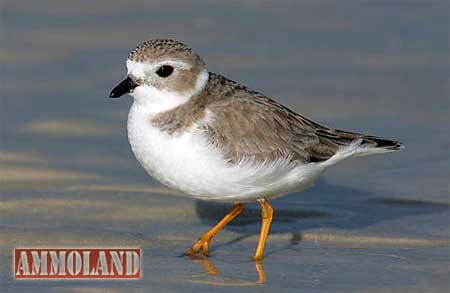

Dover, DE -(AmmoLand.com)- DNREC’s Divisions of Parks & Recreation and Fish & Wildlife announced today that a stretch of ocean beach between Gordons Pond and Herring Point on Cape Henlopen has been reopened following the piping plover nesting season.
Fencing erected to preclude disturbances to any beach-nesting birds in the area has been taken down, with the beach now accessible for surf-fishing throughout the holiday weekend into fall.
While the oceanside beach at Gordons Pond opened earlier this week to both vehicular and pedestrian traffic, DNREC advises that dunes and overwashes leading to the pond remain closed off to any human activity to protect sensitive and rare habitats, including supporting the federally-listed Seabeach Amaranth plant.
In accordance with agreements between DNREC and the U.S. Fish & Wildlife Service, the ocean beach at Gordons Pond is closed when the first piping plover nest of the season is found, and is reopened after the last piping plover chick has fledged. Typically, this results in closures beginning in mid-May and reopening by mid-August, said Matthew Bailey, Division of Fish & Wildlife biologist and beach-nesting bird program manager.
This year, he said, there was only one piping plover pair nesting at Gordon’s Pond (in the past there have been two or three pairs).
“The plover nest this season was abandoned by the incubating adults for reasons unknown,” Bailey said. “After a period of intense monitoring, it was determined that the plovers had abandoned the site entirely, and that further nesting was unlikely this season.”
At that time the ocean beach was reopened to the public, including permitted vehicles for surf fishing.
For more information on beach-nesting birds and monitoring efforts, please contact Matthew Bailey at 302-382-4151 or email matthew.bailey@state.de.us.
About the piping plover
The piping plover was listed as threatened under the federal Endangered Species Act (ESA) in 1986, and the Division of Fish & Wildlife is responsible for its protection in Delaware. Under a binding agreement and subsequent species management plan that DNREC made in 1990 with the U.S. Fish and Wildlife Service (USFWS), the federal agency with oversight of this ESA-protected species, piping plover nesting areas at Cape Henlopen State Park are closed annually to the public to protect the shorebirds from disturbance during their nesting season which usually runs from March into September. This includes the Point and smaller areas around Gordons Pond. The closure has been successful, increasing the number of piping plover nesting pairs from a low of two pairs to a high of nine pairs, and must include feeding habitat as well as nesting areas. Piping plovers feed on small invertebrates that inhabit the intertidal zone near their nesting territories. Chicks are not fed by their parents, but rather are led to the shoreline to forage while the adults keep watch for potential threats. Allowing pedestrian traffic in the intertidal zone adjoining nesting areas would disturb the vital link between nesting and foraging habitat and risk adverse stress or mortality to the chicks.
About the Delaware Department of Natural Resources and Environmental Control (DNREC)
DNREC is committed to preserving the quality of Delaware’s environment, maintaining the health and safety of its residents, and protecting the natural systems upon which life depends. DNREC’s Division of Fish and Wildlife’s mission is to ensure that the freshwater, marine and wildlife resources of the State of Delaware will be conserved and managed for equitable and sustainable use.
For more information, visit: www.dnrec.delaware.gov.
